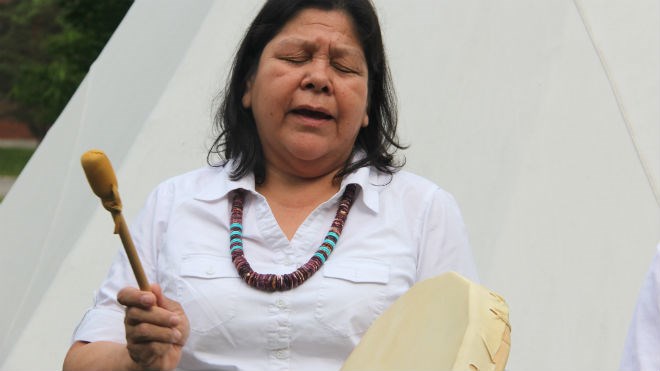In the fall of 1972 I arrived in Little Current, Manitoulin Island with an old Volkswagen van (pop-up roof), a motorcycle, a beard, a change of clothes, and a C chord harmonica. I was the new editor of the Manitoulin Expositor. As a refugee from Don Mills in Toronto, by way of Thunder Bay, I was ready to open chapter two in my Northern Ontario odyssey, which was to keep me connected to the North for the rest of my life.
I soon experienced the best and the worst of the relationship between First Nations peoples and the hardy souls from around the world who came to inhabit this extraordinary Northern land. I knew nothing about how small towns work or Aboriginal communities function.
Soon enough, I was writing a story about racism at the newly built high school in West Bay (now M’Chigeeng).
The question was the deliberate streaming of Aboriginal students away from higher education opportunities.
The landlord of the building occupied by the newspaper suggested the rent would go up by four if we continued to write about such intemperate themes. I took a small inheritance and bought a building up the road and moved the Expositor the following month. It wasn’t my best investment, but it opened my heart and my eyes to the realities of the day. Ironically, if I hadn’t bought the building I would never have moved to Sudbury to start my newspaper company, which changed my life.
Last week, Justin Ferbey came to Sudbury to speak at the Goring Family Lecture Series at Laurentian University in Sudbury. He is an extraordinary First Nations leader from Carcross, Yukon, about 40 miles south of Whitehorse. He has been at the centre of revolutionizing the First Nations economy of Carcross. In 10 short years they carved out of their land a mecca for mountain biking.
Carcross has some of the best trails in the world. They started by sending their children up into the mountains to build trails, followed by retraining their parents to build a commercial village to serve the growing tourist trade, and leveraged those skills to build housing for the community and for people looking to spend more time in their neck of the woods. It is an inspiring story of self-help, determination, sophistication, and success. The theme was “We’ll do whatever it takes” — and they did. The community has changed forever. It could not have happened without the freedom to determine their own priorities. In short: self-government.
At the same lecture series, my friend Dawn Madahbee, general manager of the Waubetek Business Development Corporation on Birch Island (up the road from Manitoulin), came to speak about the development of the Great Spirit Circle Trail on Manitoulin Island.
This is another story of moving from being taken for granted (bus tours meandering through First Nations communities without so much as postcard of introduction) to taking control of the tourism experience, shaping it through First Nations values (some traditions are for sharing, others too sacred for such exhibition) and building a sustainable business for the benefit of First Nations people. The most dramatic representation of this success is the new Manitoulin Hotel and Conference Centre owned jointly by five First Nations communities in the area.
Both these stories are leading indicators of the extraordinary growth and revitalization of many Aboriginal communities. Waubetek has invested in more than 2,000 Aboriginal businesses within 125 miles of Sudbury with extraordinary success.
None of this success comes easily or uniformly in Canada. The road is pockmarked with disappointment, political infighting, corruption, entrenched welfare infrastructure, the effects of the residential school system, racism, lethargy and vested interests on both sides of the question who benefit from stasis.
The torpor is crumbling. The Supreme Court, the Truth and Reconciliation Commission, the new federal government and people like Dawn and Justin are smashing the usual.
There is hope and, yes, the rent will go up, but the dividends will be remarkable.
Michael Atkins is the president of Northern Life.
Join Sudbury.com+
- Messages
- Post a Listing
- Your Listings
- Your Profile
- Your Subscriptions
- Your Likes
- Your Business
- Support Local News
- Payment History
Sudbury.com+ members
Already a +member?
Not a +member?
Sign up for a Sudbury.com+ account for instant access to upcoming contests, local offers, auctions and so much more.
